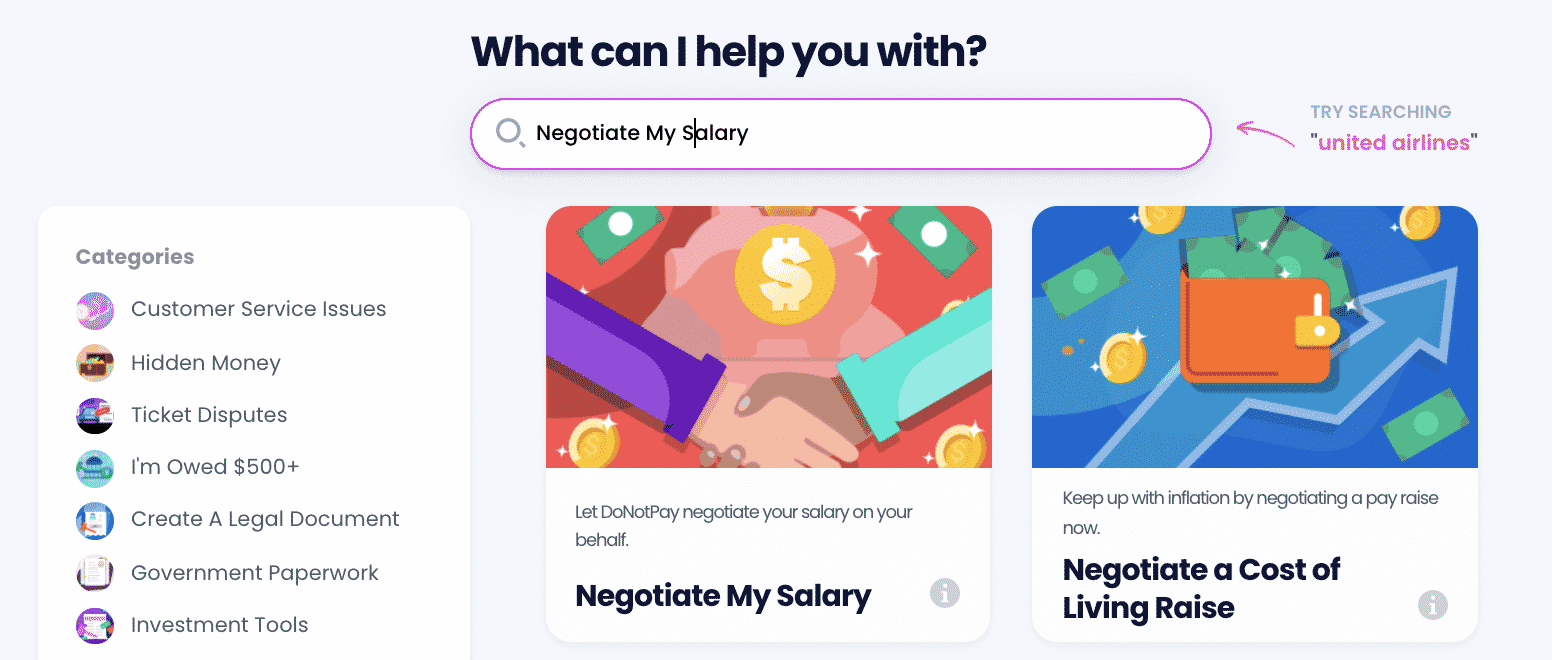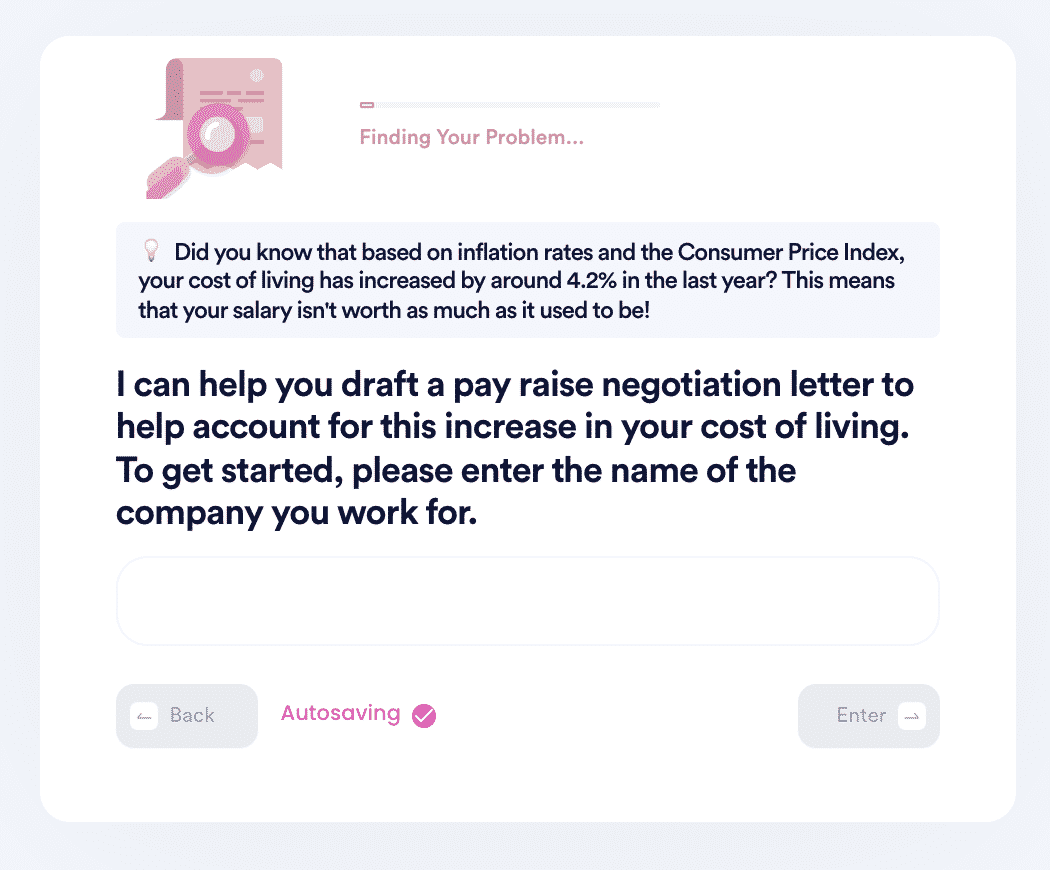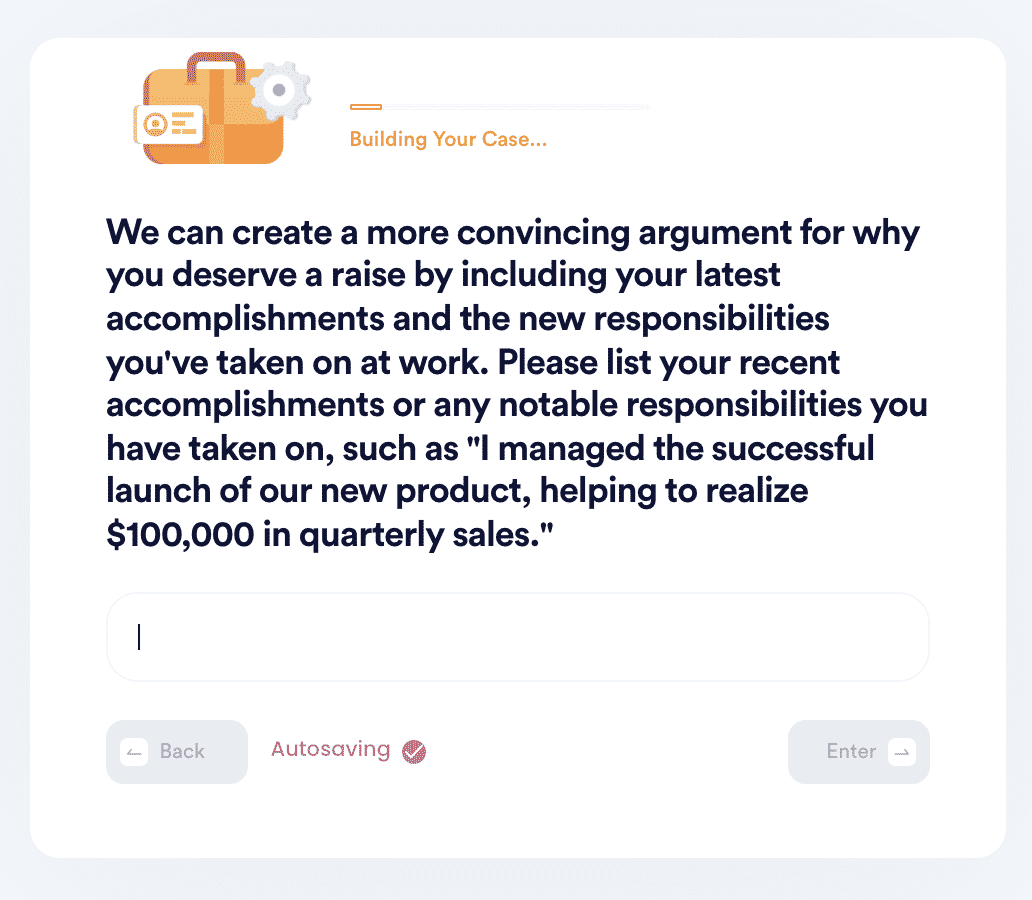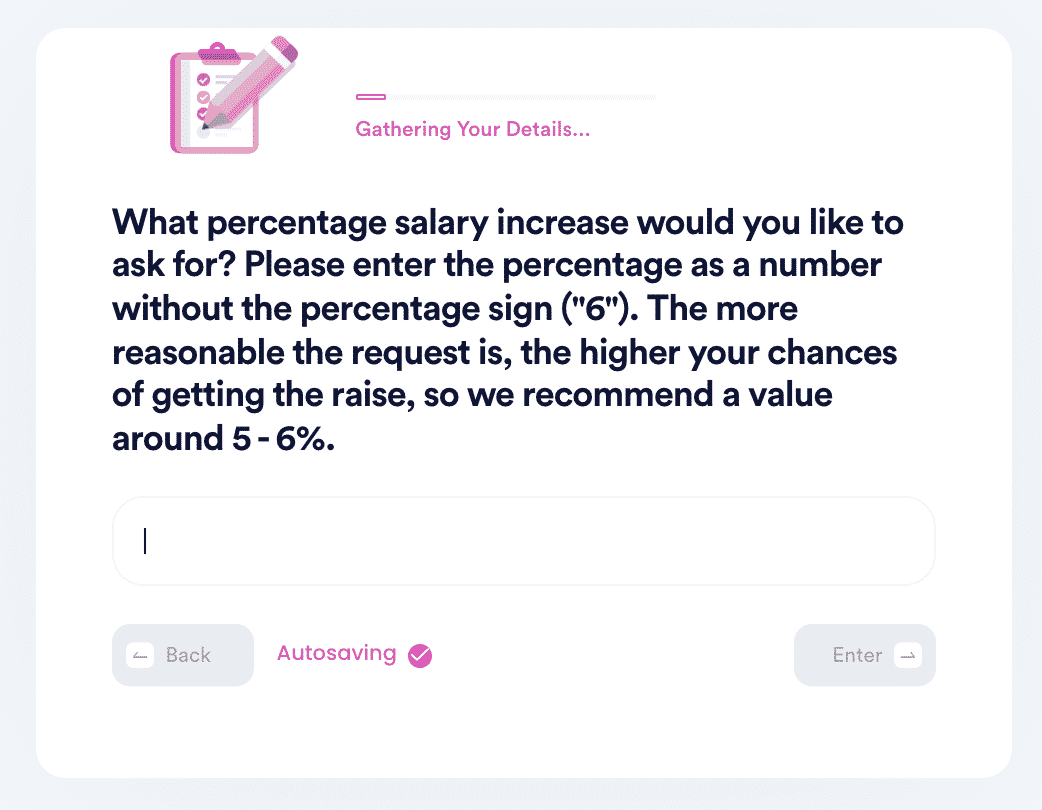Can You Ask For a Raise After 6 Months?
Yes. If you just started a new job or you are starting a new position at your current workplace, you should ideally wait at least six months before asking for a raise. Anything sooner may not be enough time to present yourself as a valuable asset to the firm.
There's no terrible moment to start talking about wages once you've been working for six months. Even if you're unclear about your firm's financial situation, you should proceed with salary negotiation. However, can be challenging for many. Luckily, DoNotPay is here to help you.
3 Tips for Negotiating Your Salary
You should do several things when asking for a raise to improve your chances of receiving one. If your employer believes you have a strong case, they may be more willing to offer a raise. Here's how:
1. Wait for the Right Time
When asking for a raise, timing is crucial. One of the ideal times to ask is shortly after you've successfully completed a job or gained credit for a professional accomplishment. This way, your hard work is fresh in your employer's mind.
Wait for a time when your boss is receptive to conversation. Pick a time when they aren't busy or schedule your meeting well ahead of time so your boss isn't pushed to make a choice. If you mention that you'd want to meet to talk about your job, they'll probably assume you're talking about a pay raise.
2. Conduct Research
Before you ask for a raise, do some homework. Determine how much other employees in your position earn. When determining how much extra you should earn, take at least three factors into account. They include:
- Industry
- Experience
- Location
Use the study to choose the ideal amount. You can then consider the lowest amount you'd be pleased with. If you are not granted a raise, keep working hard in your current position. If they see you investing more effort, your employer may ultimately grant you one.
3. Make a Compelling Case
Your boss will be interested in hearing why you deserve a raise. Consider the talents you've acquired and the tasks you've taken on throughout your time at the company. Explain to them that your roles have changed and you believe you're ready to take the next step in your career.
How Often Should You Get a Raise?
In most cases, you shouldn't ask for a raise more than once a year. There are exceptions, of course. There are a few instances where asking for a raise more than once a year may be worthwhile. You may want to ask for a raise if:
- You've recently been promoted to a new role with increased responsibilities.
- If you work more hours or manage a team.
- You meet a significant corporate objective. However, do so in moderation.
Reasons to Get a Raise
There are several reasons for getting a raise. They include:
| You Got a Promotion | You'll want to be paid more in the new role if you get a promotion. You might be doing more work for the same income if you don't get a raise. |
| Expanded Responsibilities | As you progress within the company, you will most likely be given more complex tasks or obligations than when you started. Consequently, you should get more compensation. |
| You’ve Stayed Long With the Company | Employers have to provide competitive wages to keep you on board. As living expenses continue to rise, so should your pay. Your boss should constantly evaluate how much someone in your position should be paid and modify your salary accordingly. |
on your own may be quite challenging as you have to conduct extensive research, prepare your argument and even write raise request letters. You can, however, ace this with DoNotPay's help.
How to Negotiate Your Salary With DoNotPay
Negotiating your raise with DoNotPay is quite straightforward. All you have to do is:
- Search "negotiate my salary" on DoNotPay.

- Enter the name of your company and the industry you work in, so we can find the right wage statistics for your role.

- Answer a series of questions regarding your qualifications and achievements, relocation expenses, and other job offers if applicable.

- Enter the new base salary you would like to request.

And that's it. Once the information is finalized, DoNotPay will generate an official salary negotiation letter that you can then email or present to your employer.
What Else Can DoNotPay Do?
We can also help you:
- Reduce property taxes
- Fight workplace discrimination
- Contest parking tickets
- Conduct car lease negotiations
- How to negotiate salary over the phone
Spend some time on DoNotPay today to learn about other ways you can use the app to make more money and save more, too.


